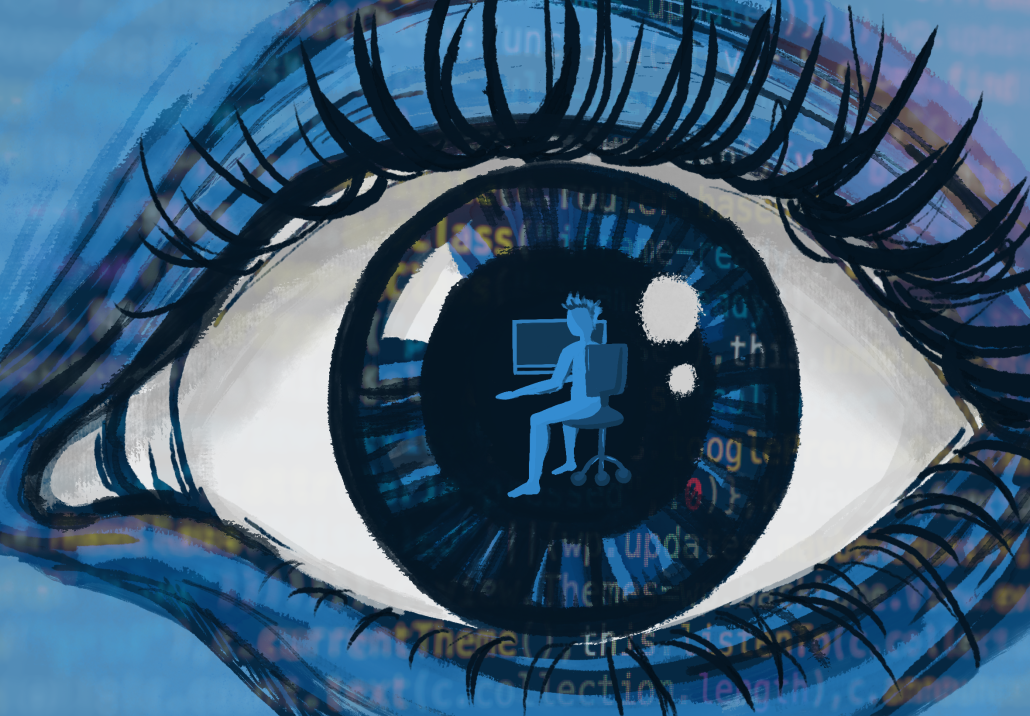Byte of Life: Our personal data circulates in an underground economy
In 2017, The Economist published an article claiming that oil, the world’s most valuable resource, had been replaced with data. This sentiment has been echoed and overstated everywhere. At universities and corporations, “data analyst” is emerging as the new hip career. Harvard Business Review even declared being a data scientist as the “sexiest job of the 21st century.” However, with so many wanting to be analysts and scientists, we completely overlook one question: Who collects all these datasets?
Obtaining “big data” isn’t as simple as sending a Google Form to your classmates — it’s collected and processed from the moment you connect to your Wi-Fi and sent every time you click a link, log in to a website or interact with a company. Most of the time, we have no choice but to agree to a company’s rules, such as mandatorily accepting cookies to use their website properly. Granted, most of this data isn’t directly harmful, as much of it remains unstructured and unprocessed. However, problems begin when companies start to treat data as valuable raw materials that can be leaked, traded and weaponized.
There are two main ways our data is exchanged — through corporations or data analysts and software programmers and criminals, who trade data “like Pokémon cards,” according to a cybersecurity specialist.
Let’s start with corporations. While everyone knows the FAANG — Facebook, Amazon, Apple, Netflix and Google — companies, many people don’t know about the third-party companies, or “data brokers,” who obtain and sell our data to other companies for commercial use.
For example, Acxiom LLC collects information from approximately 68% of the world’s internet population and sweeps it under the rug. Without the majority of the internet population even realizing it, these data brokers make millions of dollars by selling tracked data.
According to Pam Dixon, executive director of the World Privacy Forum, data brokers commercialize disturbingly sensitive datasets of personal information, including lists of sexual assault victims, domestic violence shelters and people suffering from genetic diseases and addictive behaviors. In addition to these cryptic datasets, data brokers sell information regarding consumer credit scores, mortgages and health scores.
On top of this, companies unfairly interpret this data. For example, some have resorted to sorting out qualified candidates in hiring processes through algorithms. These programs factor in completely unnecessary features, such as social capital, candidates’ connections on LinkedIn and geographic information.
While I support technology use that improves human jobs, companies should not use pure data as a proxy for one’s capabilities, personality and potential.
Additionally, criminals trade our data through the big data black market. A study conducted by Google and the University of California, Berkeley found that billions of usernames and passwords are currently at risk and 1.9 billion of those passwords were obtained through third-party data breaches from the companies that we just mentioned.
Alarmingly, these stolen usernames and passwords can be purchased as easily and frequently as I purchase Pirate’s Booty from Target. Criminals produce automated shops where leaked username and password packages can be bought at varying prices. On these sites, you can literally buy someone’s identity, which is indexed to FICO scores, and much more: Titan HQ reports, “Diplomas for $100-400 … [and] passports are the real prize, garnering as much as $2000.”
While there is clear severity to the passport trading in the personal data underground economy, most people do not care; more specifically, most people do not know enough to care. Most people have no choice but to accept the terms of agreement and hand their data over to companies.
This is all cryptic information — but does that mean we should end data science and analytics? Despite the existence of data mismanagement, I remain an advocate for data driven decision making. In 2018, California passed the Consumer Privacy Act, along with 25 other states who passed data-related privacy regulations.
While companies still find loop-holes, I remain optimistic we will eventually hold data oligopolies, such as the oil oligopolies of the past, to more equitable standards for taking our data for free. In tandem with the growing cybersecurity market, encryption technology is becoming more relevant and will make our interweb journeys safer.
Data is here to stay. While the underground market for our information will continue to persist like any market, our generation is the most technologically literate, and I believe that the next users of the internet will begin to take privacy and personal data matters into their own hands.
Miguel Mercado is a sophomore writing about the impacts of technology and economics on 21st century college students. His column, “Byte of Life,” runs every other Tuesday.


